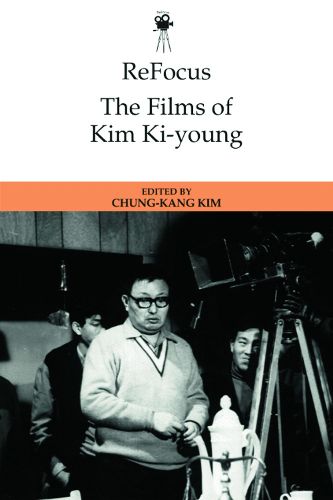Readings Newsletter
Become a Readings Member to make your shopping experience even easier.
Sign in or sign up for free!
You’re not far away from qualifying for FREE standard shipping within Australia
You’ve qualified for FREE standard shipping within Australia
The cart is loading…






World-renowned South Korean directors, including Park Chan-wook and Bong Joon Ho, cite Kim Ki-young as being the greatest Korean influence on their work. During his thirty year career, Kim Ki-young produced thirty-three films and became revered by critics within the national and international community as one of the few South Korean ‘auteurs’.
As the first comprehensive scholarly volume on Kim Ki-young in English, ReFocus: The Films of Kim Ki-young covers his entire career and history of cinematic work, highlighting the thematic and stylistic singularity of Kim’s oeuvre, which was produced relative to the specific historical and cultural conditions of post-war South Korea. It offers an innovative departure point from which to explore South Korean film relative to the wider history of world cinema, in addition to situating Kim’s work within the broader fields of Korean modern history, transnational cinema and cultural studies.
$9.00 standard shipping within Australia
FREE standard shipping within Australia for orders over $100.00
Express & International shipping calculated at checkout
World-renowned South Korean directors, including Park Chan-wook and Bong Joon Ho, cite Kim Ki-young as being the greatest Korean influence on their work. During his thirty year career, Kim Ki-young produced thirty-three films and became revered by critics within the national and international community as one of the few South Korean ‘auteurs’.
As the first comprehensive scholarly volume on Kim Ki-young in English, ReFocus: The Films of Kim Ki-young covers his entire career and history of cinematic work, highlighting the thematic and stylistic singularity of Kim’s oeuvre, which was produced relative to the specific historical and cultural conditions of post-war South Korea. It offers an innovative departure point from which to explore South Korean film relative to the wider history of world cinema, in addition to situating Kim’s work within the broader fields of Korean modern history, transnational cinema and cultural studies.